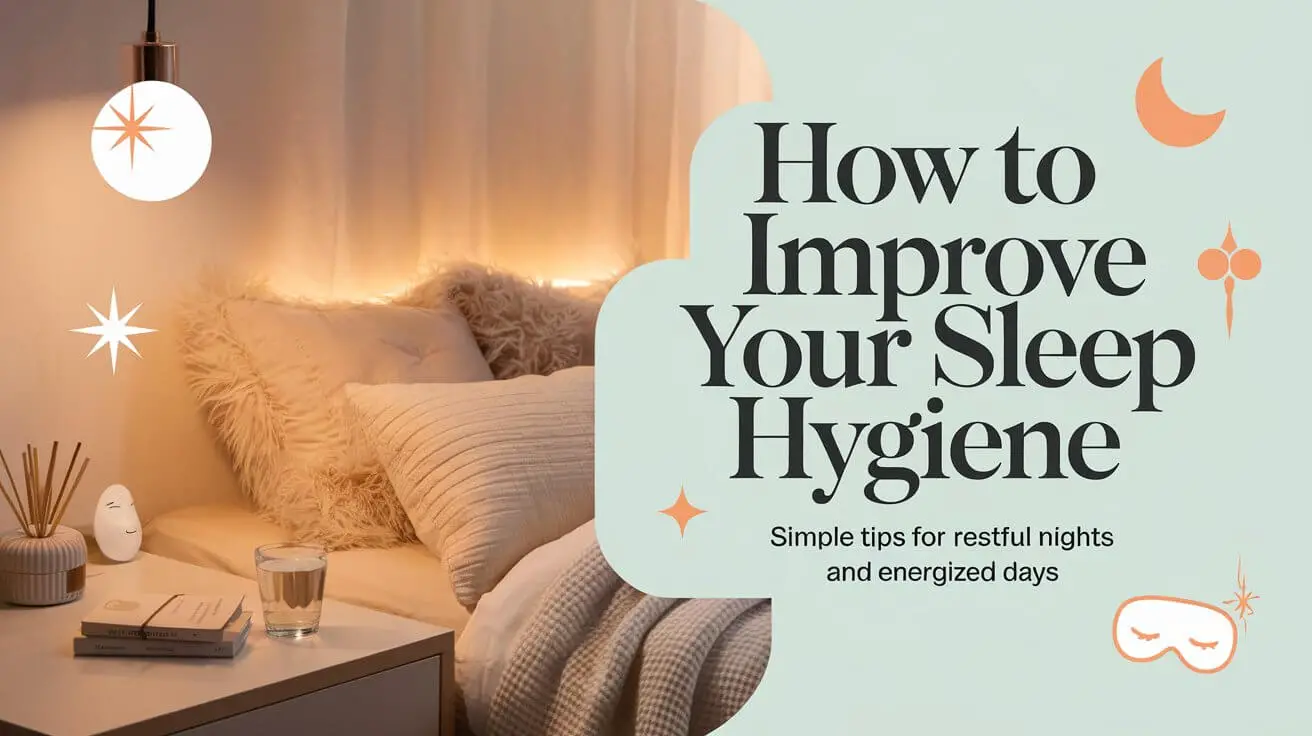The importance of sleep is something I didn’t fully appreciate until I started experiencing restless nights. For a long time, I thought staying up late to finish work or watch TV wouldn’t affect me much. But over time, I began to notice how tired and unfocused I felt during the day. I struggled to concentrate, felt irritable, and even simple tasks seemed harder than usual. That’s when I realized how crucial sleep is for overall well-being.
In this article, I’ll share why sleep matters and the steps I took to improve my sleep hygiene. If you’ve ever found yourself tossing and turning at night or waking up feeling exhausted, these tips might help.

Why Sleep is Important
Sleep is more than just rest. It’s the time when your body repairs itself and your brain processes information from the day. Without enough quality sleep, your body can’t function properly.
Here are some ways sleep affects your health:
-
Better Focus and Productivity
When I was sleep-deprived, I often found myself staring at the screen, unable to get work done. A good night’s sleep helps improve memory, concentration, and decision-making. -
Stronger Immune System
I used to catch colds frequently when I wasn’t sleeping well. Sleep strengthens your immune system, making it easier to fight off illnesses. -
Emotional Health
I noticed that on days when I slept poorly, I felt more anxious and moody. Sleep plays a big role in regulating emotions and stress levels. -
Physical Health
Poor sleep can increase the risk of heart disease, diabetes, and weight gain. I experienced weight fluctuations when my sleep was inconsistent. -
Energy and Recovery
Sleep is essential for muscle repair and energy restoration. I felt less sore and more energized after I started prioritizing sleep.
How to Improve Your Sleep Hygiene
Once I realized how important sleep was, I began making small changes to improve my sleep hygiene. Sleep hygiene refers to habits that help you get better quality sleep. Here are some practical tips that worked for me.
1. Create a Consistent Sleep Schedule
I used to stay up late one night and sleep early the next. This made it harder to fall asleep consistently. Going to bed and waking up at the same time every day, even on weekends, helped regulate my body’s internal clock.
Tip: Set an alarm not just for waking up but for going to bed too. This keeps your sleep schedule consistent.
2. Limit Screen Time Before Bed
Scrolling through my phone or watching TV right before bed used to keep me awake longer. The blue light from screens interferes with melatonin, a hormone that helps you sleep. I started putting my phone away at least 30 minutes before bed, and it made falling asleep easier.
Tip: Replace screen time with reading or listening to calming music.
3. Create a Relaxing Bedtime Routine
Developing a wind-down routine helped signal to my body that it was time to sleep. I would take a warm shower, read a few pages of a book, or do light stretches. These small activities helped me relax and fall asleep faster.
Tip: Keep your routine simple and repeat it every night to build the habit.
4. Make Your Sleep Environment Comfortable
I didn’t realize how much my bedroom environment affected my sleep until I made small changes. I invested in blackout curtains, adjusted the room temperature, and switched to a more comfortable pillow. Creating a calm and quiet environment made a big difference.
Tip: Keep your bedroom cool, dark, and quiet. Use earplugs or white noise if needed.
5. Avoid Caffeine and Heavy Meals Before Bed
I used to drink coffee in the late afternoon, which made it harder to sleep at night. Caffeine stays in your system for hours, so cutting it off by late afternoon helped improve my sleep. I also stopped eating large meals close to bedtime, which reduced discomfort and allowed me to sleep more peacefully.
Tip: Opt for light snacks in the evening if you’re hungry, and avoid stimulants after 3 pm.
6. Manage Stress and Anxiety
Stress often kept me awake at night, thinking about things I needed to do. Practicing deep breathing and meditation before bed helped calm my mind. Writing down tasks for the next day also allowed me to mentally “let go” before sleeping.
Tip: Journaling for a few minutes at night can help clear your thoughts and ease anxiety.
How Much Sleep Do You Really Need?
The amount of sleep needed can vary by age and lifestyle, but most adults require 7 to 9 hours of sleep each night. I aimed for 7.5 hours, which gave me enough rest to feel refreshed.
Listen to Your Body: If you feel tired during the day or need caffeine to stay awake, you might need more sleep.
What to Do If You Still Can’t Sleep
If you’ve tried improving your sleep hygiene but still struggle with falling or staying asleep, it might be helpful to consult a doctor. I learned that sleep disorders, like insomnia, are more common than I thought and can often be treated.
Conclusion
Improving sleep hygiene took time and patience, but the benefits were worth it. I felt more energized, focused, and generally healthier after making sleep a priority. The importance of sleep goes beyond just feeling rested—it’s essential for your overall health and well-being. By making small changes to your routine and environment, you can improve the quality of your sleep and feel better throughout the day.
